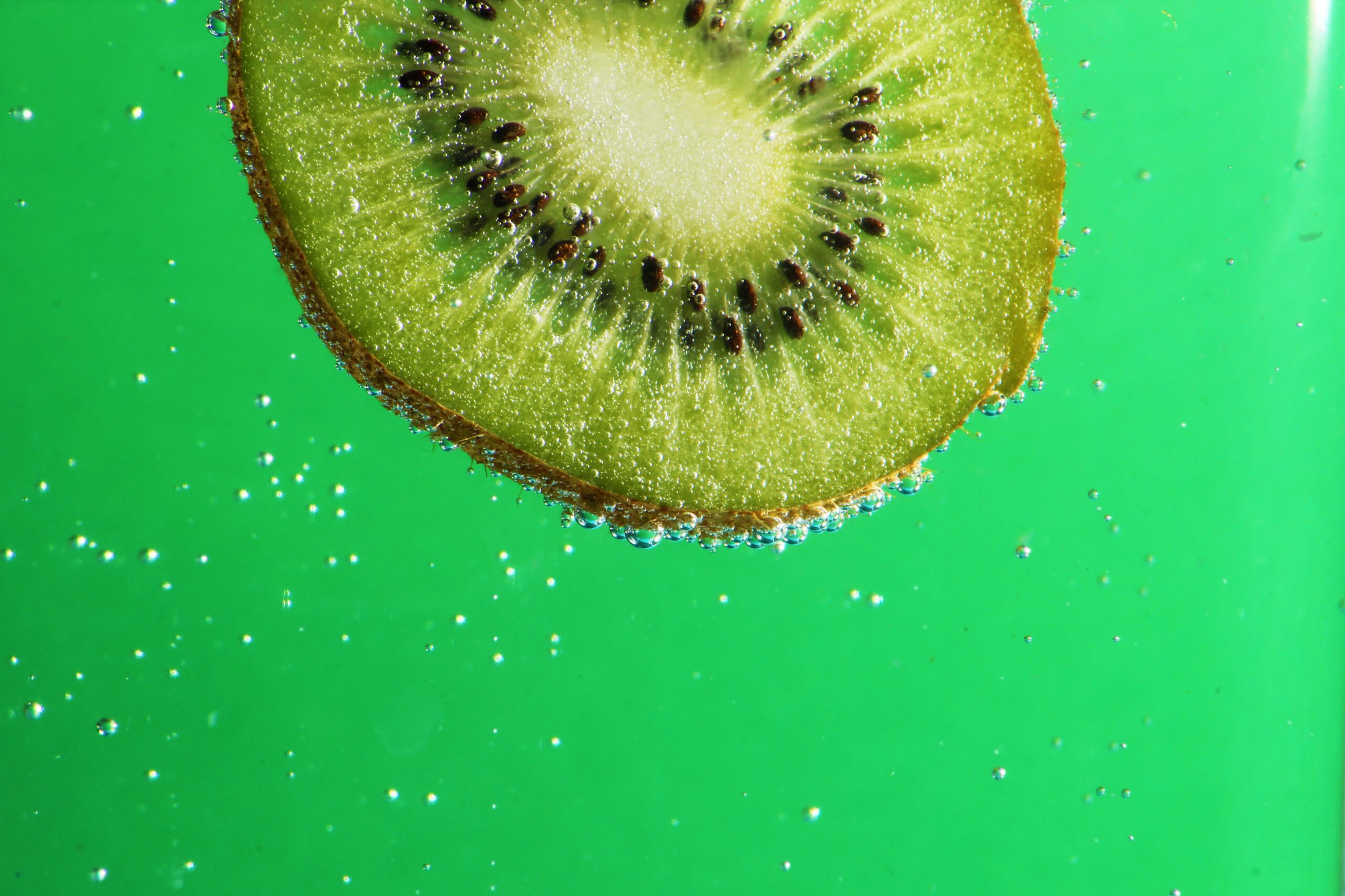Alopecia Areata: A Deep Dive, Part 3
This. Is. Important. A root cause approach to hair loss requires us to acknowledge: 1) Hair loss is a symptom of inflammation, 2) In order to resolve chronic inflammation, we must identify its source (root cause), and 3) By addressing those root causes of inflammation, we’re supporting the body’s innate healing process.
Because gut health is central to hair health, we need to invest ourselves in the idea that the way we should be addressing hair loss (and maybe especially autoimmune hair loss, alopecia areata) is to address the sources of inflammation leading to leaky gut.
Have you read the first two articles in this series on alopecia areata yet? Here are those articles in case you missed them: part 1, part 2.
What Is Leaky Gut?
Let’s start with how things with our gut should be working. When our gut is functioning optimally it’s able to perform its tasks well. Foods that we eat are broken down to prepare the nutrients found in those foods for absorption.
In order to absorb those nutrients our gut is made up of a semi-permeable membrane; this allows things that needs to stay in the gut, stay in (for example, the non-absorbable components of foods, bacteria, etc.); it also ensures that nutrients that need to travel outside the gut through absorption can do so effectively. This process is called selective permeability and its critical to our survival.
When our gut is not functioning optimally the process of selective permeability begins to fray. The semi-permeable membrane can become “leaky” and allow food proteins or bacteria to inappropriately escape the gut.
Leaky gut is a failure of the gut barrier and it has a compounding effect on inflammation; it begins with inflammation as a trigger, but leaky gut itself generates a lot of inflammation as well. It’s important to understand this point because its central to our understanding of the role that leaky gut plays in the onset of autoimmune disease (aka chronic inflammatory diseases) such as alopecia areata.
As per usual, in order to fix something, we need to understand how it broke in the first place. This is a root cause, functional medicine approach to health where we try to understand “why” issues with our health occur, versus just silencing and suppressing symptoms.
Here are the top 7 root causes of leaky gut – note that this is not a comprehensive list of all the potential triggers of leaky gut, but they are the ones that I see most frequently.
Top 7 Root Causes of Leaky Gut
- Gut dysbiosis
Our gut is home to an estimated 100 trillion microorganisms that play a crucial role in maintaining our health – including participating in digestion, regulating the immune system, and protecting against leaky gut. Gut dysbiosis can look like too much or too little of any of the microorganisms in our gut and may sometimes (but not always) involve pathogenic bacteria.
Do you need to be experiencing gut symptoms to have gut dysbiosis? In short, no. Often times people have gut dysbiosis or hidden gut infections that are contributing to significant inflammation and immune dysregulation without experiencing many or any gut specific symptoms (e.g. constipation, diarrhea, heart burn, etc.).
The only way to know the current state of your gut’s ecosystem is to have a functional stool test run. These tests are an advanced form of testing that offer comprehensive information on your gut microbiome (including bacteria, parasites, and fungi) and are also able to tell how well your digestive and absorption processes are functioning. If your digestive system is not functioning optimally (for example, if you have insufficient stomach acid) this can have an impact on your nutrient status (needed to maintain the gut barrier) and can also negatively shape the gut microbiome in a way that creates more inflammation.
- Chronic stress
We know that stress is bad for our hair. High levels of stress (and especially prolonged or chronic stress) can lead to excessive hair loss by shortening our hair’s growth phase and putting the follicle into an extended rest phase. But stress is also harmful to our gut health because it increases intestinal permeability (aka leaky gut) and promotes gut dysbiosis (another root cause of leaky gut).
Even though we think of stress in terms of emotional or mental stress, there are other forms of stress that we need to be mindful of (for example, the stress of under eating and overtraining).
On top of that, it’s important not to overlook trauma (especially childhood trauma) as a source of chronic stress contributing to leaky gut. This may be one reason why ACEs (adverse childhood experiences) are frequently associated with autoimmune disease.
- Poor sleep
Too little sleep (or poor-quality sleep) can lead to leaky gut because of how our sleep-wake cycle (also known as our circadian rhythm) and gut intersect. Our bodies have evolved to take cues from our external environment when setting its internal 24-hr clock. It is based on the information that it’s given that our body (including individual cells and countless biological processes) knows when we should be awake and alert and when we should be resting and recovering.
One of the most important external cues that our body uses to set our circadian rhythm to is light. When we are exposed to certain wave lengths of light, our body takes it as a clue that it’s time for us to be awake. In the absence of this light (also called darkness) it takes it as a clue that it’s time for us to be asleep. Prior to the invention of artificial light like the light bulb, humans were more or less in sync with our environments. Now, our environments are polluted by artificial light and its effects on our circadian rhythm are significant. With a circadian rhythm out of balance, many of our body’s other processes can become disjointed – including those needed to maintain healthy gut function and the integrity of our intestinal barrier.
- Poor diet
It should come as no surprise that our diet influences our gut health. But what makes a diet harmful to our gut health? First of all, we need to eat nutrient-dense foods to provide our body with the nutrients that it needs to maintain the gut barrier. Unfortunately, many of the foods that we eat today are highly processed, making them calorie-rich but nutrient-poor. These same processed foods can also contribute to gut dysbiosis and leaky gut because of their low fiber content, their use of additives and preservatives, and the pro-inflammatory oils they contain. All of these factors can make the foods we eat harmful to our gut health.
In addition to nutrient-poor processed foods, food containing gluten cause leaky gut. This is true for individuals regardless of whether or not they have a specific gluten allergy (i.e. celiac disease) or sensitivity.

- Toxins
Toxins can not only impair nutrient absorption and utilization (so important to maintain gut barrier function and immune balance) but they can also generate a lot of inflammation, promote gut dysbiosis and leaky gut. Pesticides found in our foods (as well as our drinking water), bisphenol-A (BPA) frequently found in food and beverage packaging, chlorinated drinking water, heavy metals like cadmium and lead, to name a few all have a negative impact on our gut health.
- Under (or over) exercising
Here’s the upside: technology has allowed us to become more efficient. Here’s the downside: technology has allowed us to be too efficient. Whereas physical exertion has been part of the human existence since the dawn of civilization, we now find ourselves living in environments that often don’t require us to lift a finger. As a culture we are too sedentary – specifically we spend too much time sitting versus standing or walking.
Not moving our bodies frequently enough can lead to issues with our gut including disrupting our gut motility (how food moves through our body) and can create an inflammatory gut microbiome leading to leaky gut.
On the flip side, strenuous activity can also cause leaky gut. This is especially an issue for people who engage in high-intensity exercises (spin class, OTF, cross fit) who are also struggling with some of the other root causes of leaky gut that we’ve been talking about.
The right balance of exercise depends on the person and their overall health status. In general, I recommend that my clients start with standing more (aiming for about 50% of their day standing) and take frequent breaks throughout the day to walk, aiming to get in 10,000 steps per day in total.
Too often I see client’s fall into the trap of thinking that they can be sedentary all day (i.e. office job) and then compensate for that by doing a high-intensity exercise. Research has now shown that the negative impact of sitting can’t be outweighed by engaging in exercise later, demonstrating how important it is to be consistently active throughout the day.
- Pharmaceuticals and over-the-counter medication
Yes, sometimes the drugs that we take to get well can actually make us sick. Don’t get me wrong, if your doctor has told you that you need to take certain medication then I am not here to contradict them. But we can’t ignore the real (and possibly lasting) impact that many commonly used drugs can have on our health, especially our gut health.
Antibiotics are routinely overprescribed and can have long lasting impacts on our gut microbiome and has been shown to increase intestinal permeability. Proton-pump inhibitors (PPIs) are frequently used to lower stomach acid in people who experience heartburn or gastrointestinal reflux disease (GERD). These drugs can alter the microbiome and create a pro-inflammatory environment in the gut, contributing to leaky gut.
Other drugs that are known to seriously impact gut health include select serotonin reuptake inhibitors (SSRIs), hormonal birth control, and non-steroidal anti-inflammatory drugs (NSAIDs), among others.




